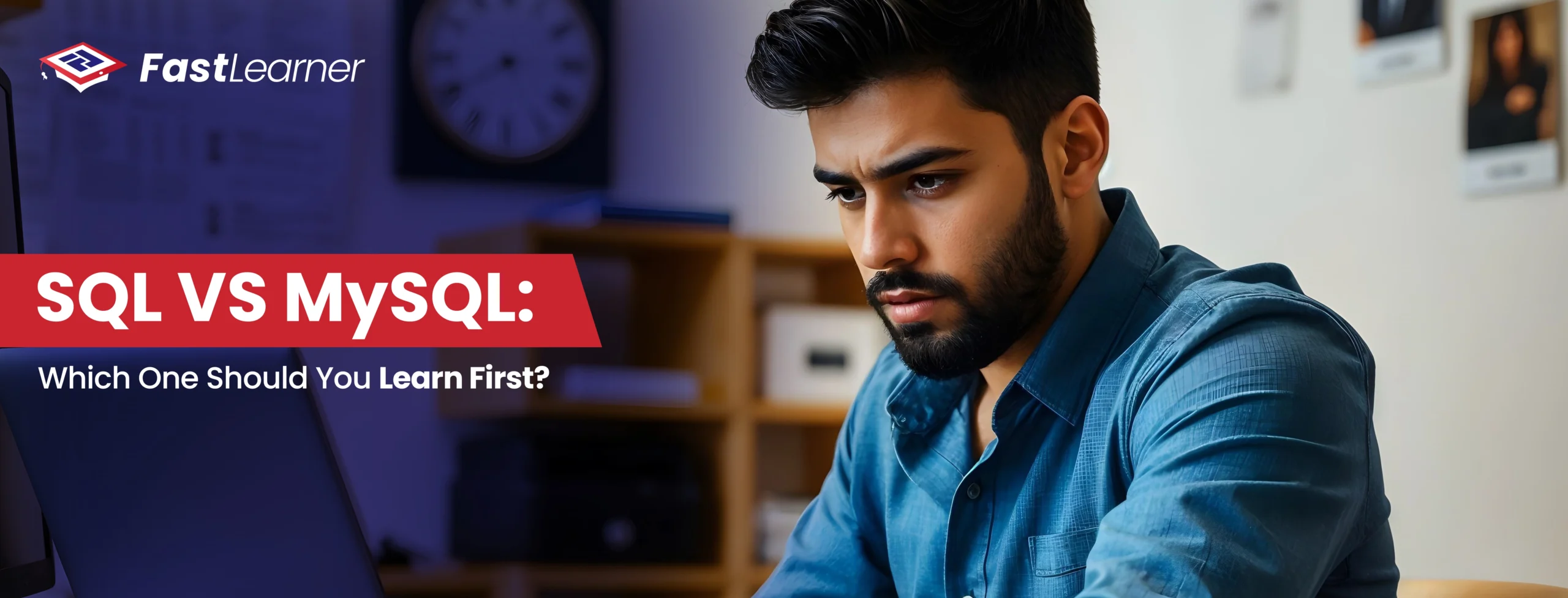You’re not alone if you are new to databases and wondering whether to learn SQL or MySQL first. Many aspiring data professionals, developers, and students grapple with this dilemma.
Understanding the difference between SQL vs MySQL is crucial to making an informed decision about where to start.
In this article, we’ll explore what distinguishes SQL from MySQL, which one should you learn first? And the different SQL languages.
So, read on, and learn the best language for you.
Key Takeaways - SQL vs MySQL
- The fundamental differences between SQL and MySQL.
- What SQL is and its role in database management.
- What MySQL is and how it operates as a database management system.
- The pros and cons of starting with SQL vs MySQL.
- How SQL is used across various database platforms.
- The difference between SQL Server and MySQL.
- A suggested learning path for mastering SQL and MySQL.
What is SQL?
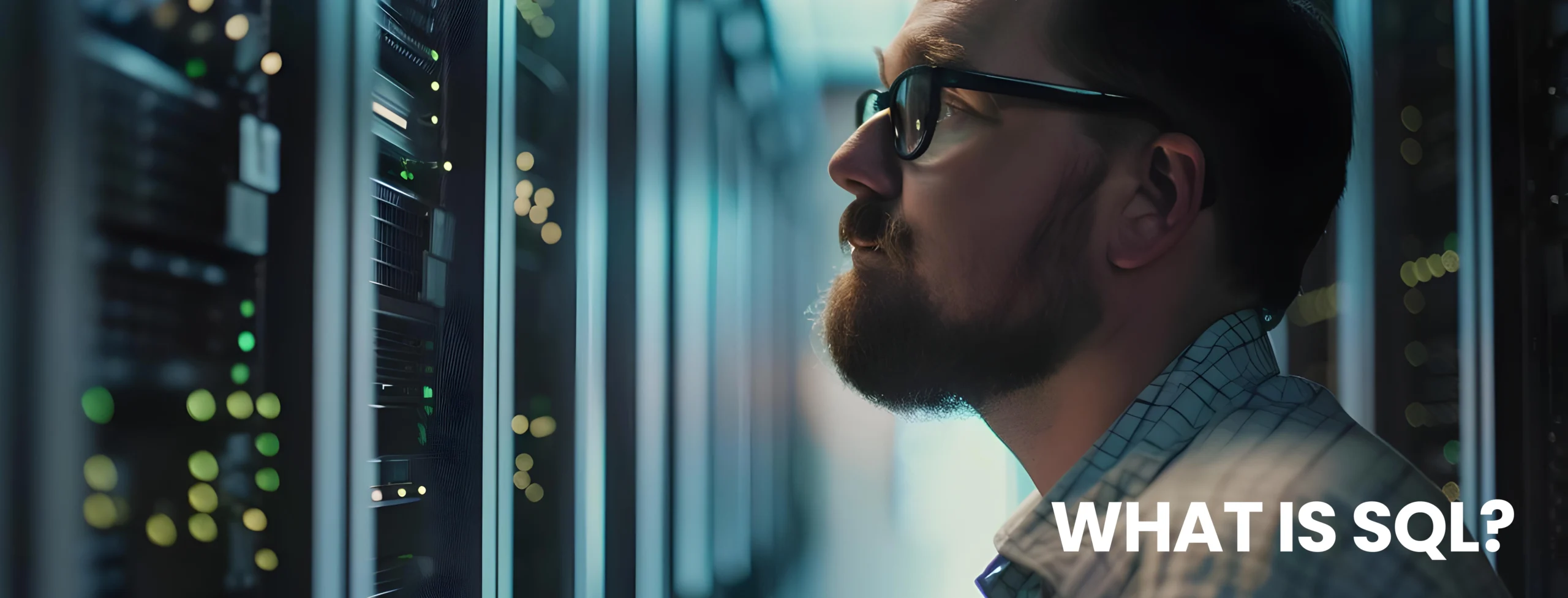
SQL, short for Structured Query Language, is a standard programming language specifically designed for managing and manipulating relational databases.
It allows users to perform operations such as retrieving data, updating records, creating tables, and managing permissions.
SQL is the foundation of nearly all database management systems, and learning it is essential if you want to work with databases effectively.
Different SQL Languages
SQL is not tied to any one database system. Instead, it serves as the core language for various database platforms, including MySQL, PostgreSQL, Microsoft SQL Server, and Oracle Database. While the syntax may vary slightly between platforms, the fundamentals of SQL remain consistent. For instance, commands like SELECT, INSERT, UPDATE, and DELETE work similarly across different systems, albeit with minor differences in implementation.
What is MySQL?
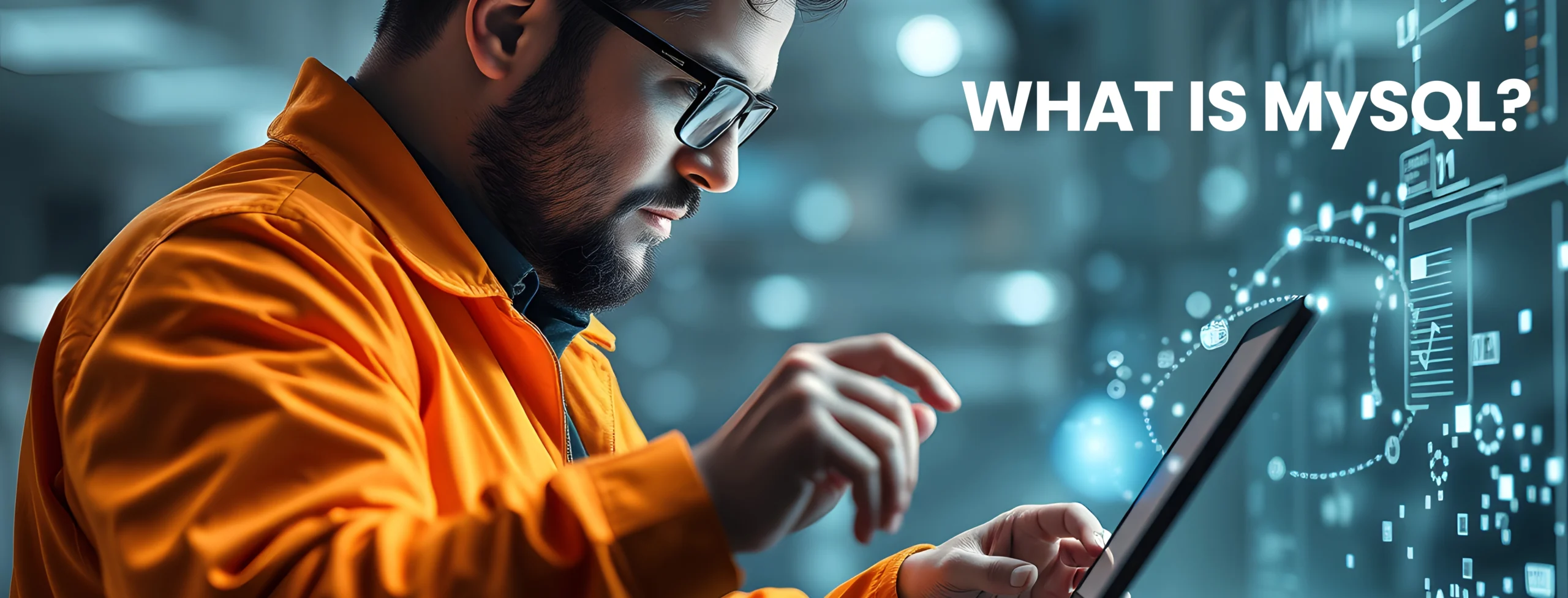
MySQL is an open-source relational database management system (RDBMS) that uses SQL as its query language.
Developed by Oracle Corporation, MySQL is one of the most popular database systems in the world due to its speed, reliability, and ease of use.
It is widely used for web applications, including content management systems like WordPress, e-commerce platforms, and social media websites.
According to Statista, the following is the ranking of the most popular database management systems worldwide, as of June 2024.

Key Features of MySQL
- Open-Source Nature: MySQL is free to use and has a large community of developers contributing to its growth.
- Scalability: MySQL can handle small projects as well as large-scale enterprise applications.
- Compatibility: It works seamlessly with various programming languages, including PHP, Python, and Java.
Security: MySQL offers robust security features such as user authentication, data encryption, and permission management.
SQL vs MySQL: Understanding the Difference
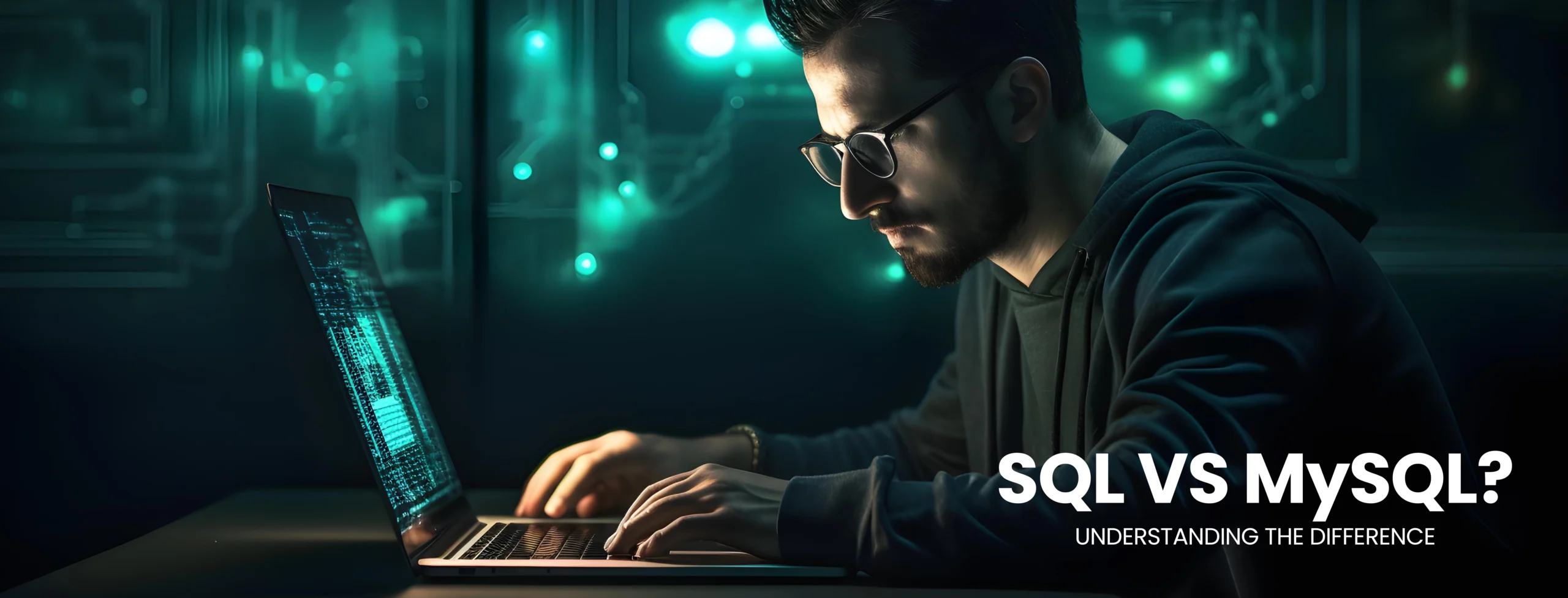
To make an informed decision about which one to learn first, it’s essential to understand what is the difference between SQL and MySQL.
Here are the primary distinctions:
SQL:
- Definition: SQL is a programming language used to interact with relational databases.
- Purpose: It provides the commands and syntax needed to manage and manipulate database structures and data.
- Flexibility: SQL is universal and works across multiple database systems.
- Examples: SQL is used in platforms like MySQL, PostgreSQL, SQL Server, and Oracle.
MySQL:
- Definition: MySQL is a database management system (DBMS) that uses SQL as its query language.
- Purpose: MySQL is used to store, organize, and manage data efficiently.
- Specialization: It is specifically a database tool, not a programming language.
- Use Case: MySQL is widely employed for web development and real-time applications.
The main takeaway is that SQL is the language, while MySQL is a specific software that implements SQL. This distinction forms the core of the SQL vs MySQL debate.
If you want to find out how long it takes to learn SQL, and how to improve your learning journey? Read our article “How Many Days to Learn SQL? Fast-Track Your SQL Learning Journey” on the Fast Learner blog.
Should I Learn SQL or MySQL First?
Should I learn MySQL or SQL? The decision depends on your career goals and the projects you plan to work on.
Let’s break it down:
Why Start with SQL?
- interact with any relational database, not just MySQL.
- Industry Standard: SQL is a universal skill that is valuable across different industries and roles.
- Simplifies Advanced Learning: Understanding SQL makes it easier to grasp the concepts of specific database systems like MySQL, PostgreSQL, or SQL Server.
Why Start with MySQL?
- Practical Application: MySQL is beginner-friendly and allows you to see the immediate results of your SQL queries in a practical setting.
- Popularity in Web Development: If you are pursuing a career in web development, learning MySQL first might be beneficial since it’s commonly used in this field.
- Hands-On Experience: Working with MySQL helps you understand how a database management system operates, including data storage, indexing, and backups.
Ultimately, learning SQL first is recommended if you want a broader understanding of relational databases. If you have a specific project that uses MySQL, starting with MySQL might be the more practical approach.
The Difference between SQL Server and MySQL
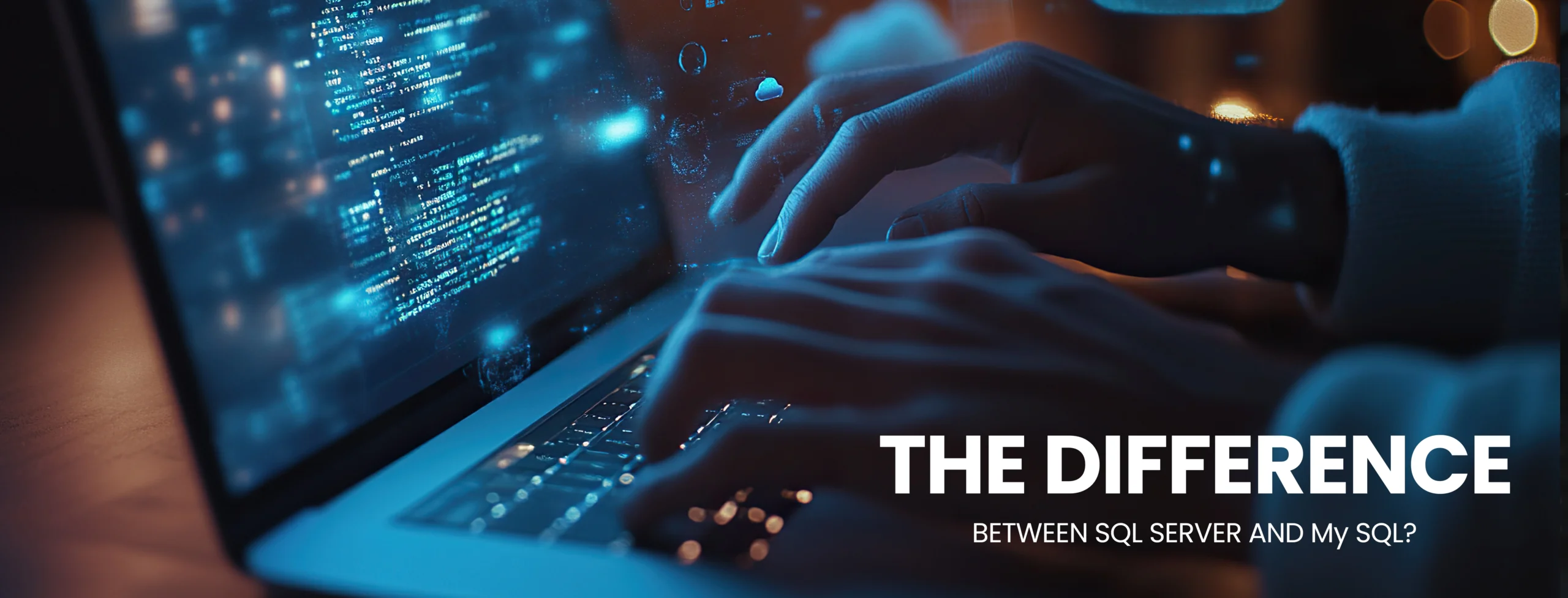
Another common question is the SQL and MySQL difference when compared to Microsoft SQL Server.
Let’s clarify:
SQL Server
- Developed by Microsoft, SQL Server is a proprietary database system.
- It offers advanced analytics and business intelligence tools.
- SQL Server is often used in enterprise environments due to its integration with other Microsoft products like Azure and Power BI.
MySQL
- MySQL is open-source and more accessible for small to medium-sized applications.
- It’s lightweight and widely used in web-based projects.
- While MySQL supports transactional processing, it may lack some of the advanced features found in SQL Server.
If you are looking for cost-effective and community-supported solutions, MySQL is ideal. For enterprise-grade projects requiring robust analytics, SQL Server is the better choice.
If you want to learn more about SQL and MySQL, you can subscribe to our course on Fast Learner, an AI-powered learning platform for all.
Is SQL and MySQL the Same?
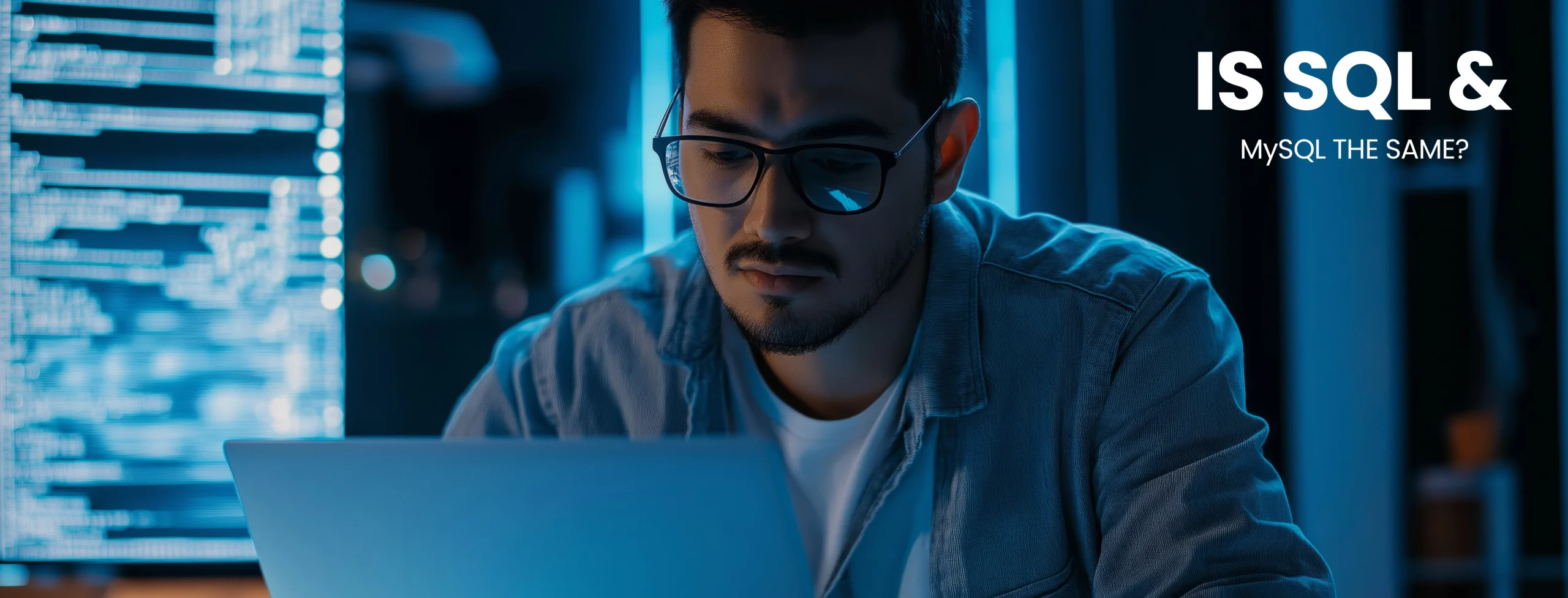
No, SQL and MySQL are not the same. SQL is a language, while MySQL is a software system that uses SQL.
Think of SQL as the blueprint and MySQL as the house built from that blueprint. Understanding this difference is critical when deciding which to learn first.
Learning Path for SQL and MySQL
Here’s a suggested roadmap for mastering SQL and MySQL:
- Start with Basic SQL: Learn essential commands like SELECT, INSERT, UPDATE, and DELETE.
- Practice with Sample Databases: Use publicly available datasets to write and test SQL queries.
- Install MySQL: Set up MySQL on your computer and create your first database.
- Combine Theory with Practice: Write SQL queries in MySQL to see how they interact with the database.
- Explore Advanced Topics: Learn about indexing, stored procedures, and triggers in MySQL.
- Build a Project: Create a simple application or website that uses MySQL as the backend.
Final Thoughts - SQL vs MySQL
When comparing SQL vs MySQL, choosing which to learn first depends on your goals. SQL provides a strong foundation for working with any relational database, making it an excellent starting point.
On the other hand, MySQL offers hands-on experience with a practical database system and is particularly useful for web development projects.
By understanding the difference between SQL and MySQL, and which one you should learn first, you can make an informed decision that aligns with your learning objectives.
Whether you start with SQL or MySQL, both are invaluable skills in today’s data-driven world. Dive in, practice consistently, and watch your database expertise grow!
FAQs About SQL vs MySQL
Which should I learn first, SQL or MySQL?
Start with SQL, as it provides the foundational knowledge needed to work with MySQL and other database systems. This way, you’ll better understand the SQL vs MySQL difference.
Do I need to know SQL to learn MySQL?
Yes, SQL is essential for using MySQL since MySQL relies on SQL as its query language. Understanding SQL makes MySQL much easier to learn.
Should I write SQL or MySQL in a resume?
Mention both if you are skilled in them. Highlighting SQL demonstrates your database query skills, while MySQL showcases your experience with a specific database management system.
Is 1 month enough to learn SQL?
Yes, 1 month is sufficient to learn basic SQL commands like SELECT, INSERT, and DELETE. However, mastering advanced concepts may require more time.
